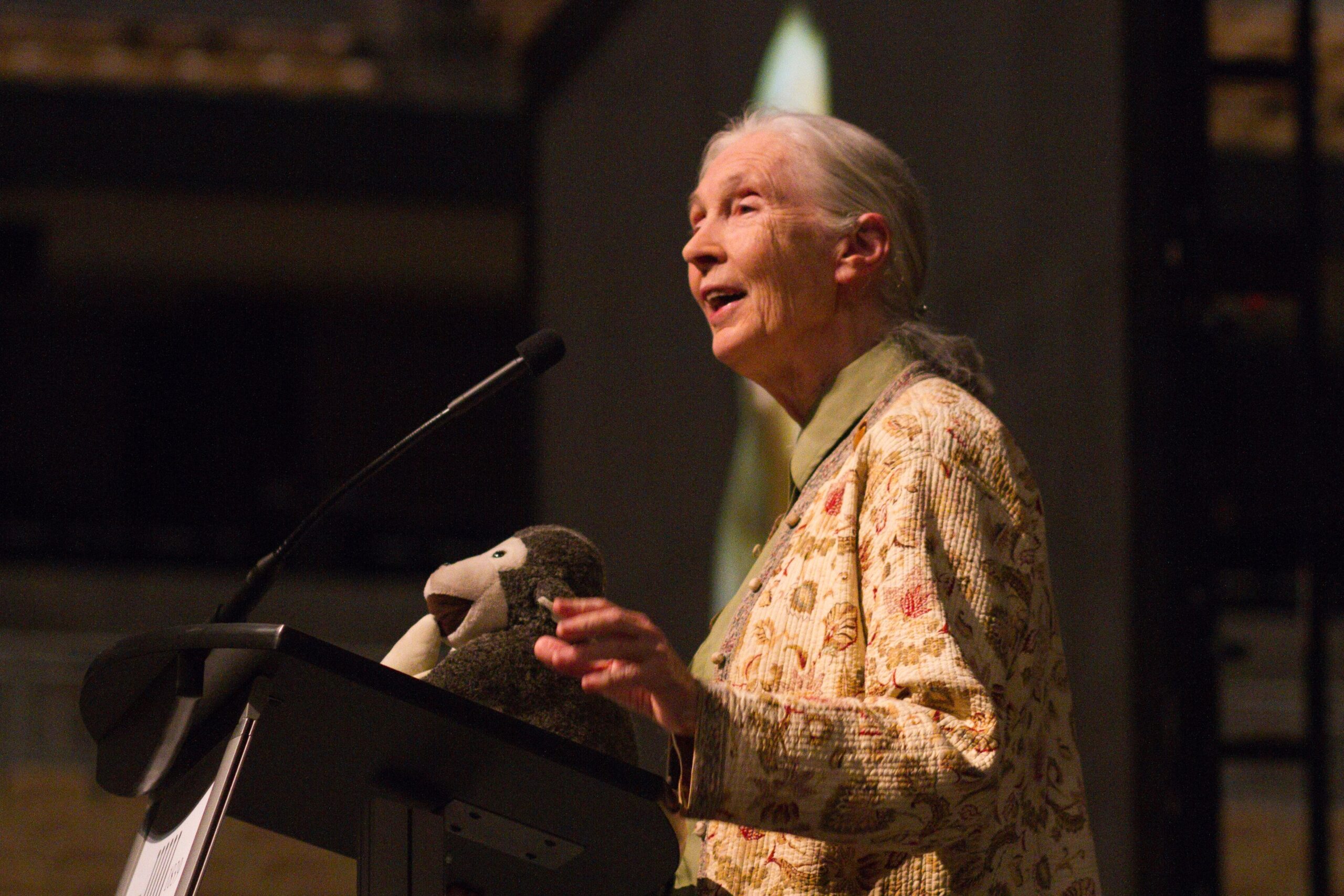
I was obsessed with Jane Goodall. She was one of those rare human beings capable of tirelessly working for a just cause all of her life, never compromising her ethics, and winning people’s hearts in the process. She was one of my idols.
In her honor, I’d like to reshare the words and ideas that stood out for me from her Masterclass, which I listened to four short years ago.
Realism is not incompatible with hope and action
I have enormous fear for the future of this planet.
“If people don’t make changes, then in 50 years time I’m glad that I won’t be here.
Although Goodall was appalled by the dire situation of our planet, the fact that she worked tirelessly as a conservation activist until her last days gave me hope.
She saw reason for hope, particularly in the younger generations:
It isn’t that young people can change the world. They are, they are changing the world even as we speak, and not just environmentally, not just because they care about animal rights, but because they care about improving things for people as well.
Now more than ever, we can’t just throw our hands up in the air and do nothing. Not about the planet, or other issues we might care about deeply.
Human intellect is not enough
Because without any question we are the most intellectual creature that ever walked on planet Earth, how is it possible that we’re destroying our only home?
Yeah, we humans are ridiculously intelligent in some ways and outrageously stupid in others. Knowing this, Goodall appealed to our capacity for empathy and compassion in her call for us to change our ways:
I believe honestly and truly that it’s only when we learn to operate with head and heart in harmony that we can achieve our true human potential.
It’s time to let go of our sense of superiority
There is not a sharp line dividing us from the other animals… We are part of an amazing animal kingdom, and there’s still so much to learn about it — and about ourselves.
One of the most striking things about Jane Goodall was her love for and empathy toward all living creatures.
All through her Masterclass lessons, she told little stories about various animals: the pet pig who traversed a hedge and alerted people its owner was in trouble; David Graybeard, the chimpanzee that first allowed Jane into his world; the little male sparrow at the Denver airport trying to impress a mate; the elephants that went crazy when bees flew up their trunks.
The way her eyes lit up as she told these stories conveyed how much she appreciated other inhabitants of the animal kingdom, how well she understood it’s not just about us.
We have been far too arrogant. The animal kingdom of which we are a part is filled with secrets.
We must compromise and find common ground
If you don’t talk to people and if you don’t try and find a way to communicate with them at some level, how can you expect there to be change? There will never be change.
Goodall saw chimpanzees communicate with one another to repair relationships after a fight, to alert others to danger, to convey pleasure and fear.
Given that we humans possess such a hugely complex and magical language, both verbal and written, how is it possible we don’t put it to better use? Why do we find ourselves using it to condemn, divide, criticize and provoke more than to ask questions and seek understanding?
Goodall worked closely with oil company executives, villagers who cleared the forest to grow crops, scientists who did research on chimpanzees living in deprivation, workers in zoos where animals were kept in deplorable conditions. She found a way into their world to reach solutions:
As long as you don’t compromise your own values, as long as you don’t do anything that you know is wrong, a series of compromises is ok.
There’s something everyone can do
We’ve let the planet down. There’s no question about that and we owe it to future generations to work with them to try and heal some of the harm we’ve inflicted.
We all tend to lose hope and become paralyzed, thinking, How will anything I do make a difference if 7 billion other people don’t change their behavior?
But that’s just an easy way out, a bad excuse to give up. Plus it isn’t true that no one else is changing their behavior. A lot of people are. We can choose to be part of the group that’s changing, and the group will grow and grow.
Every single one of us, whether we want to or not, makes a difference of some sort every single day.
Thank you Dr. Jane Goodall.

